Transcription
Witness: I came up with 15 points of similarities. Then I stopped counting.
Defense Attorney: Why did you stop counting?
Witness: Because 15 points was all I needed to make a match between the defendant's fingerprints and the fingerprints at the crime scene.
Defense Attorney: So if I called my own fingerprint expert and he said he needs to see 25 or 35 points of similarity before he can positively identify a fingerprint, would you agree with him?
Prosecutor: Your honor, I am going to have to object to the defense's cross-examination due to hearsay.
Judge: Defense, you will have the chance to call your own expert witness.
Defense Attorney: Thank you, your honor.
Defense Attorney: One more question, Mr. Ecker, did you submit my client's fingerprints to be submitted in a fingerprint database, or did you just match my client's fingerprints to the prints left at the crime scene?
Witness: The defendant's name was given to me by a detective. The detective got information from an informer that the defendant may have committed this crime.
Defense Attorney: So if it wasn't for the informant's information, you would have never compared my client's prints to the prints found at the crime scene?
Witness: Well, let me explain...
Defense Attorney: You've said enough, a simple yes or no would do.
Witness: No, we wouldn't have.
Defense Attorney: No further questions.
Judge: Prosecutor redirect?
Prosecutor: Mr. Ecker, in all the years you have been comparing fingerprints, have you ever been wrong about comparing a fingerprint?
Witness: No.
Prosecutor: No further questions.
Judge: Mr. Ecker, you may be excused. Thank you, sir.
Judge: Defense, you can now call your expert witness.
Defense Attorney: The defense would like to call Mr. William Vedjoe to the stand.
Defense Attorney: Mr. Vedjoe, please explain to the court what it is that you do.
Witness: I am an independent fingerprint expert.
Defense Attorney: So you don't work for the state, government, or police department, is that correct?
Witness: That is correct. I own my own practice.
Defense Attorney: Did you go over the fingerprints from my client and the fingerprints found at the crime scene?
Witness: Yes, I did.
Defense Attorney: Can you please explain to the court what your findings were.
Witness: Sure. The prints recovered from the murder weapon and the prints of the defendant, are not the same print.
Witness: The reason that I believe that these two prints are different is because both sets of prints, the defendant's prints and the prints from the weapon, contain genuine dissimilarity, and it is of my experience that when two fingerprints show this unique dissimilarity, the prints cannot be attributed to the same finger or individual. Also, the print that was recovered from the weapon was a partial print. This print was one-fifth the size of a full fingerprint. Basically, you can take almost any two items and study them closely and you will find out that they have differences that make them unique. For example, two plastic spoons manufactured on the same assembly line. An examiner comparing the two plastic spoons is only given 20% of one of the spoons to examine, so the examiner can't make a sure certainty that they're the same. To be on the safe side, and in all honesty, I can't make a comparison between the defendant's prints and the prints from the murder weapon. Also, there is no universal number of similarity points when identifying two fingerprints. Opinions vary from expert to expert, some experts say they need 15 points of similarity, some need 20 points of similarity, and so on. It's very hard to get 15-20 points of similarities from a partial print. Therefore, it is my belief that the prints that were found at the crime scene did not belong to the defendant.
Defense Attorney: Thank you. No further questions.
Judge: Prosecutor, cross-examine?
Prosecutor: I will pass and speak about this expert during my closing argument. Thank you, judge.
Judge: Sir, you may be excused. Thank you.
Judge: We will continue this trial tomorrow morning. Prosecutor, you will do your closing argument at 9:00am.
(Everyone leaves the courtroom)
(9:00am - court back in session)
Judge: Prosecutor, you may begin your closing argument.
Prosecutor: Thank you, your honor. Ladies and gentlemen, I want to thank you for your time today. It's not hard to figure out, the defendant's fingerprints were all over the murder weapon, a gun. Yeah, you heard that defense expert speak about his opinion concerning fingerprint comparison. He gave his opinion and now it is time to give your opinion. This young man's life was cut short by the defendant, Steven Miller, please don't let him get away with cold-blooded murder. What if that was your son, grandson, or someone you loved that he killed, would you allow him to get away with murder? The victim is not here today to tell us who murdered him. The defense wants you to think that this case is like 48 Hours mystery or a Dateline mystery, but it isn't. As far as I am concerned, it's an open and shut case. I can't tell you why the defendant left the gun at the crime scene, but what I can tell you is that an experienced fingerprint expert made a positive match to the defendant. I want you to think about that. We have the gun and we have his fingerprints, what more do we need to prove beyond a reasonable doubt that the defendant committed this ugly murder. Each of you have power, each of you have a vote, and I hope and pray that you deliberate and find the defendant guilty as charged. Thank you.
Judge: Defense?
Defense Attorney: Ladies and gentleman of the jury. Again, I want to thank you for your service today. Yes, someone was murdered. Is that a bad thing? Absolutely, it should have never happened. But my client, Steven Miller, isn't the guy that did this crime. We all know how unreliable confidential informants can be. They'll say anything to save their own butt. All you have to do is promise them money, a release from jail, etc., and they will try to be your best witness. Two fingerprint experts testified, and both had different opinions as to who the fingerprint at the crime scene belonged to. I was reading online about fingerprints and I stumbled across these words: "No matter how many fingerprint experts compare two fingerprints, their findings must be the same." I want you to think about that for a second. Why wasn't my client's fingerprints submitted to a fingerprint database? Certainly, the database would have made a match of the crime scene fingerprint to my client. But that didn't happen in the instant case. Ladies and gentlemen of the jury, what we have here is a travesty of justice. The prosecutor wants to send an innocent man to prison for the rest of his life, over a partial, barely recognizable fingerprint, because an informant told an officer that my client committed this murder. Are you serious? There's no DNA evidence, the only eyewitness failed to pick my client out of a line-up, and no other evidence exist to link my client to this crime. I'm surprised that we're even here today in court, considering this lack of evidence. The state hasn't come close to meeting their burden of proof beyond a reasonable doubt. My client deserves a fair trial, not a prison sentence. Ladies and gentlemen, when you go to that jury room to deliberate, don't be afraid to say, "State, we needed more evidence today." We just can't send an innocent man to prison for a crime that he did not commit, or for a crime for which we are uncertain if he committed it. Please do the right thing and find my client not guilty. Thank you.
Judge: Prosecutor?
Prosecutor: Thank you, judge. Ladies and gentlemen, I get one more chance to speak with you before you deliberate. The defense put on a good show, but don't buy it. The defendant's prints were found on the murder weapon and positively verified by a fingerprint expert. He's guilty. The defense asked where is the rest of the evidence. Why do we need other evidence when we have his fingerprints? As I said at the beginning of this trial, this is an open and shut case. Therefore, I ask that you go deliberate and return with a verdict of, guilty of murder. Thank you.
Judge: I want to thank all the jurors for their time. You can now start your task of deliberating. Please take your time and feel free to ask for help if you need to. Bailiff, please escort the jury into the deliberation room.
(jury is now in deliberation)
(Two hours later)
Judge: Prosecutor/Defense attorney, we will bring the jury in, I've just been informed by my clerk that they have a verdict. (Jury is back in the courtroom). Jury foreperson, would you please read the verdict.
Juror: We, the jury, find the defendant, Steven Miller...
Sorry about that. :) What do you think. Do you think Steven is guilty or not guilty, and if so, why? What did you base your decision on? Who gave the best representation to the jury, the prosecutor or the defense? What did you think of the experts who testified? Please share your comments with me or go to: www.jpay.com, here you can email me and your email will be forwarded to me. My ID is: Michael Winsett, ID: 64714. Let me hear what you think. Thanks!
Other posts by this author
|
2016 apr 25
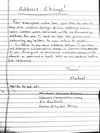
|
2015 may 29
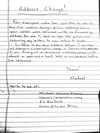
|
2015 jan 13
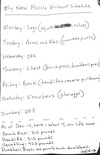
|
2015 jan 11
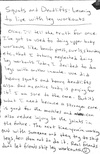
|
2015 jan 10
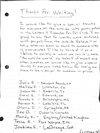
|
2015 jan 10
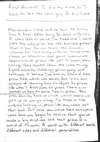
|
More... |

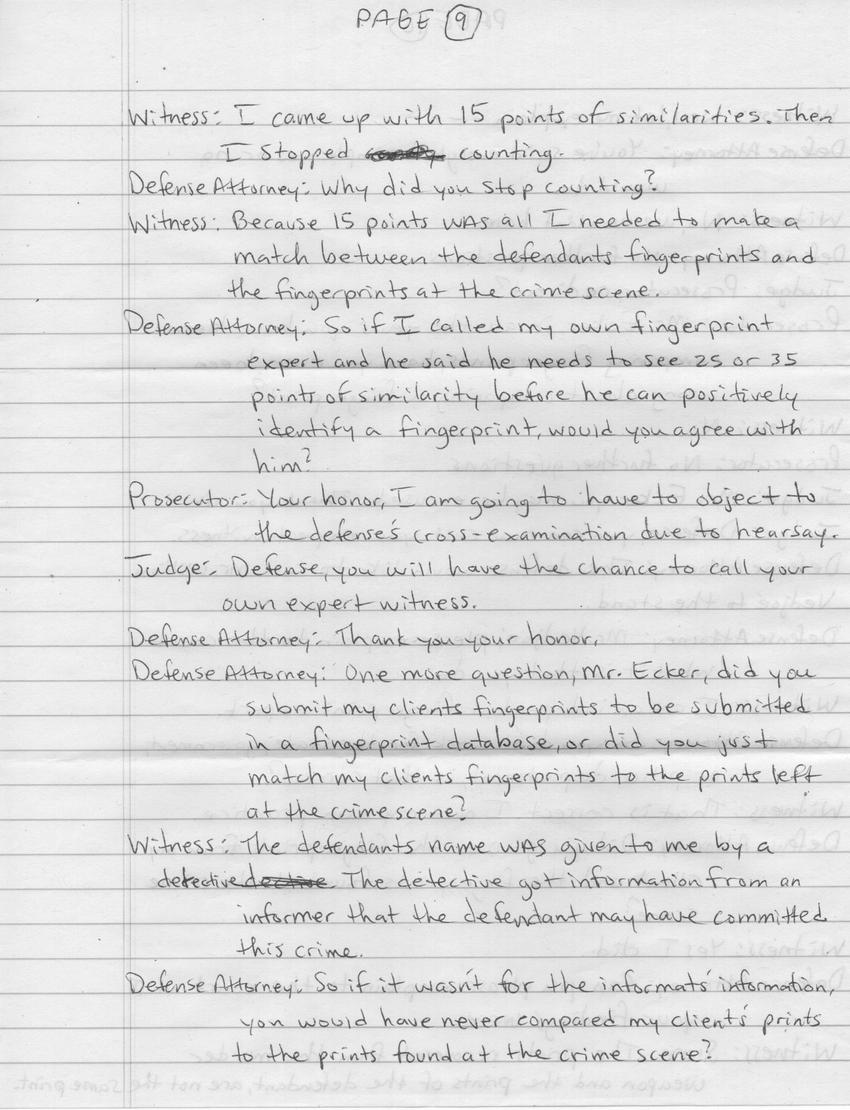
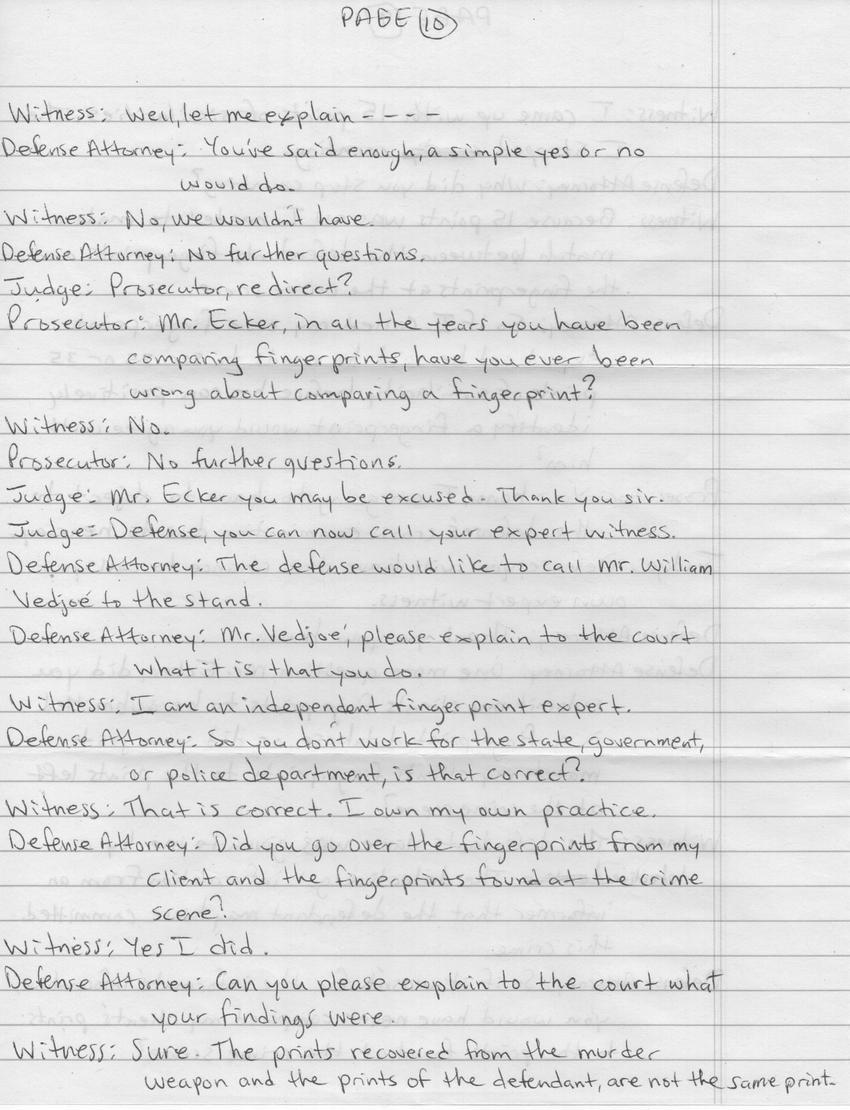
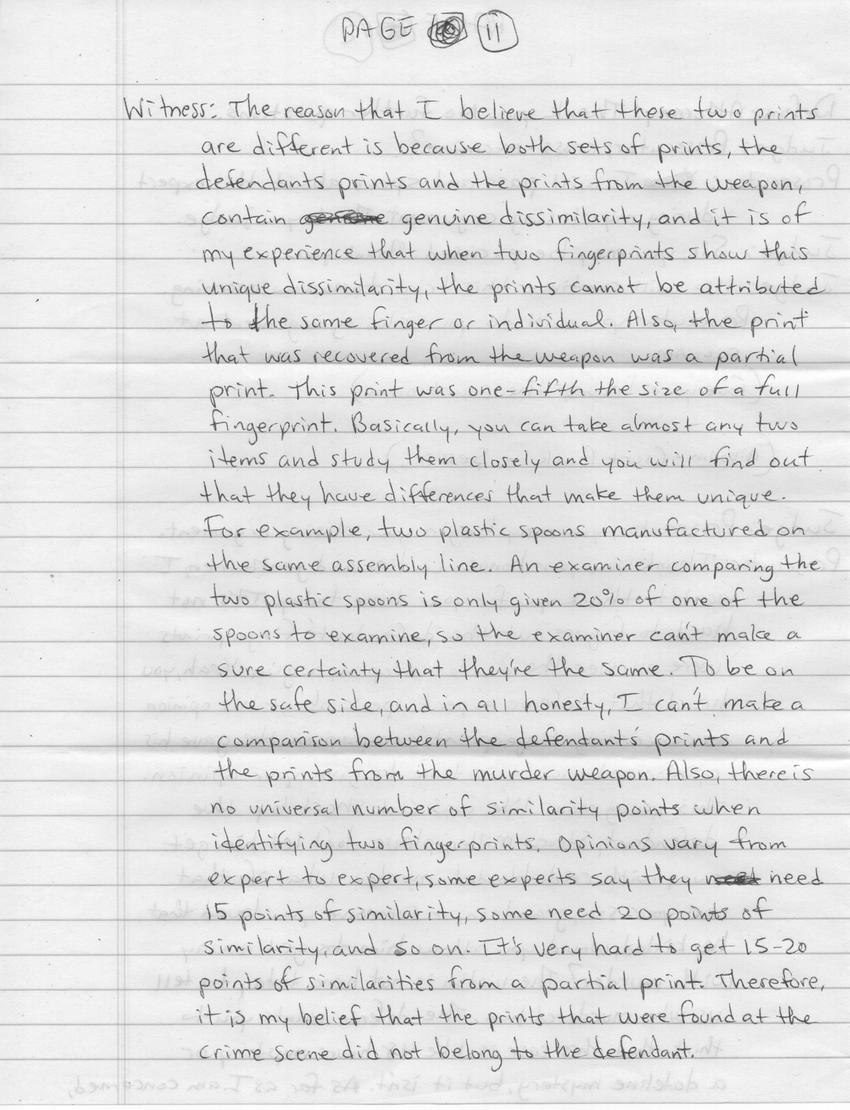
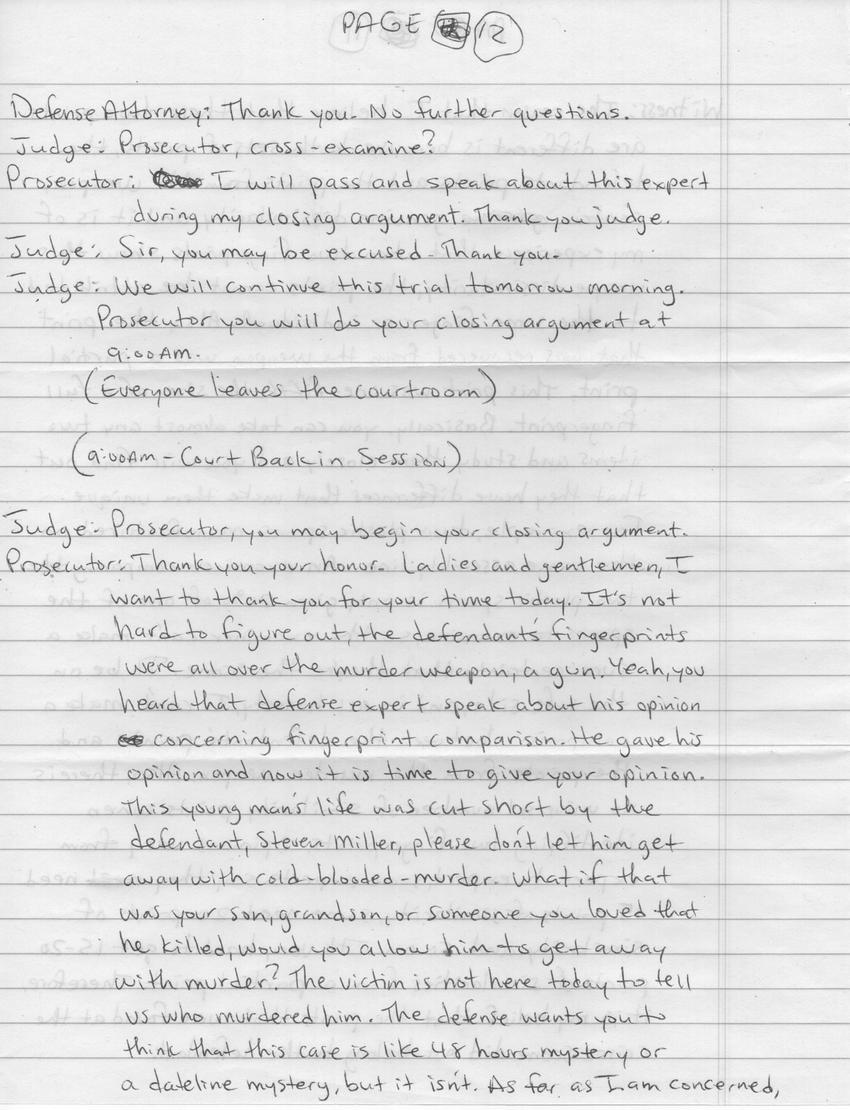
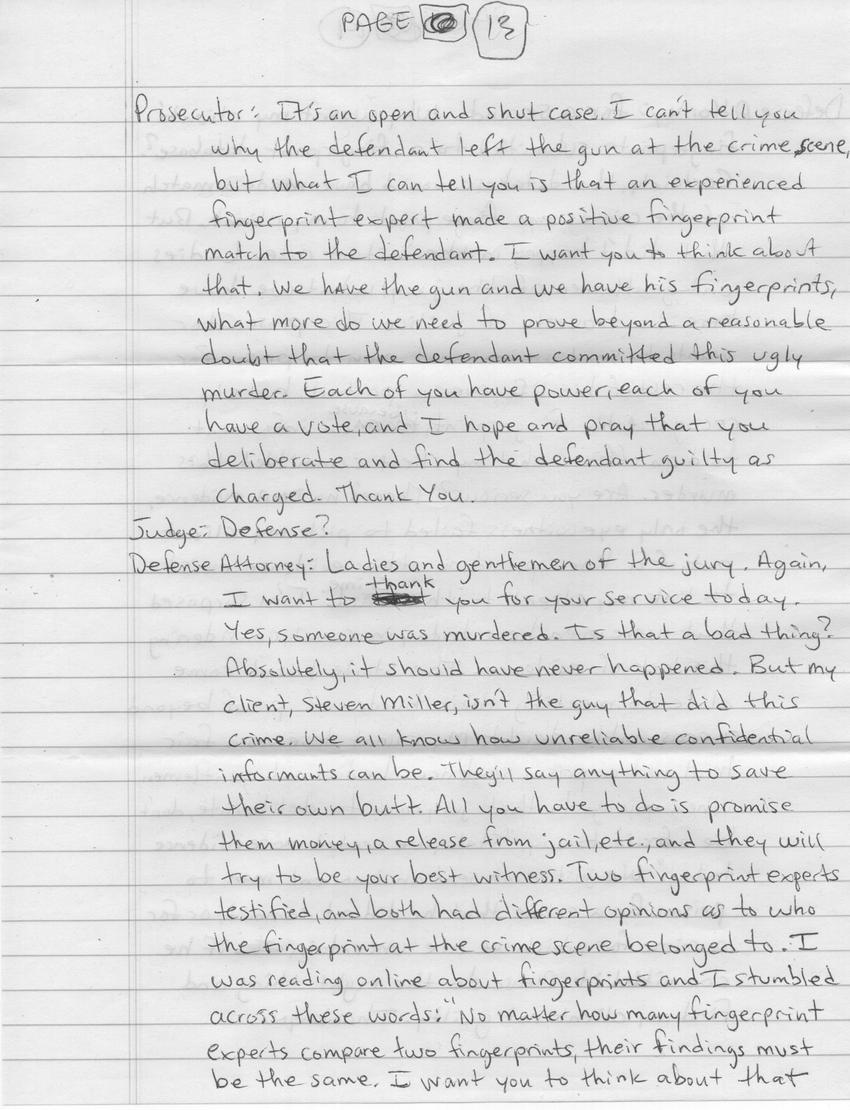
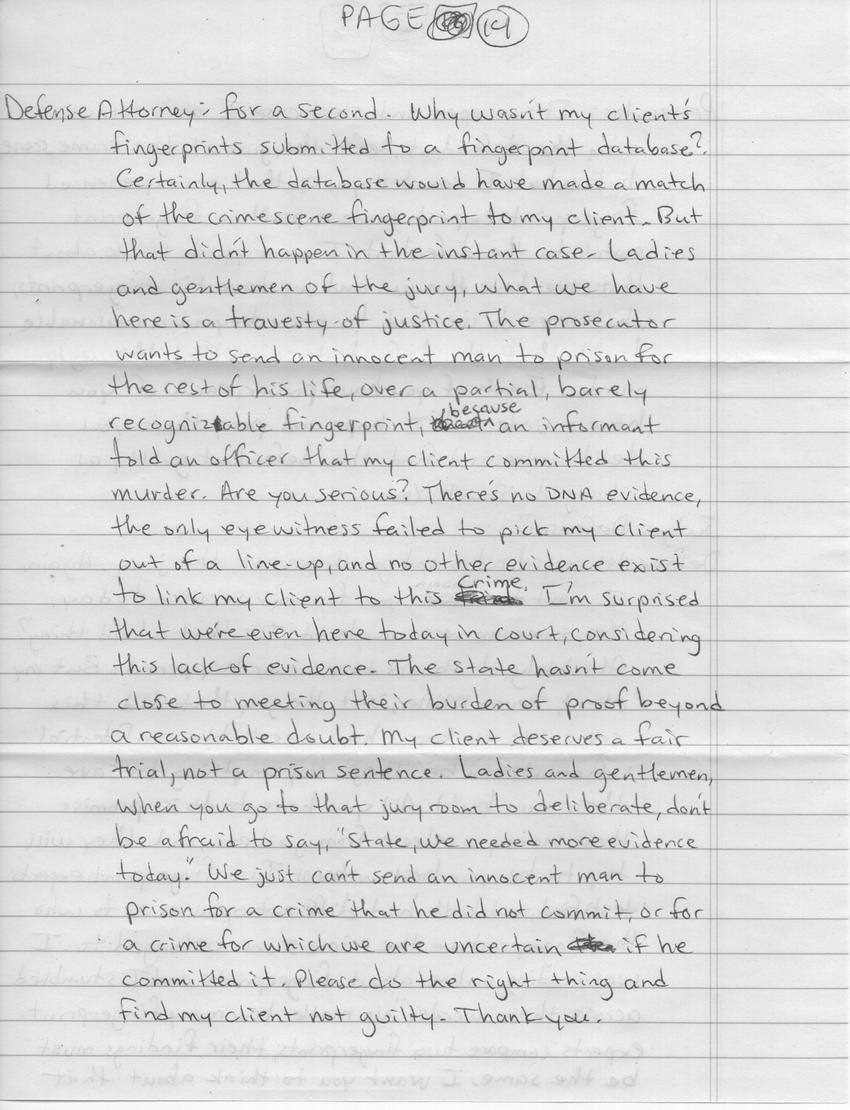
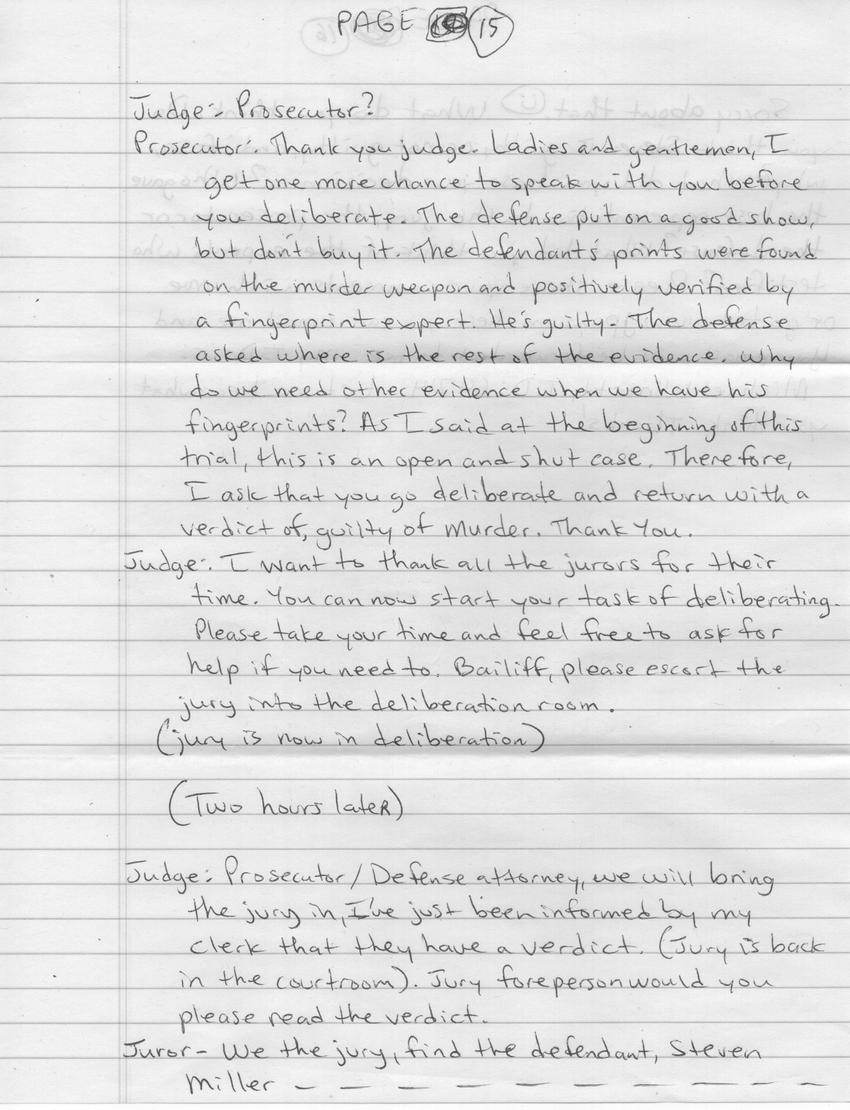
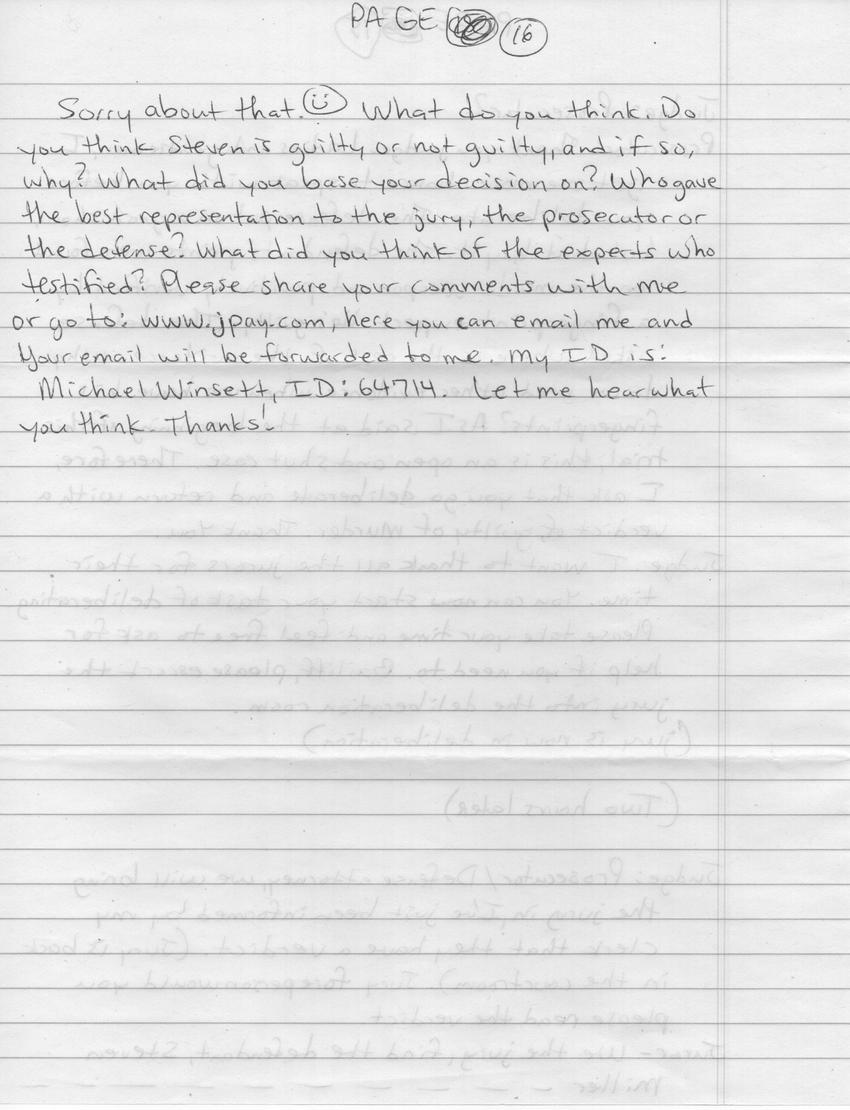

Replies (1)
or you decided to create a fictional story?